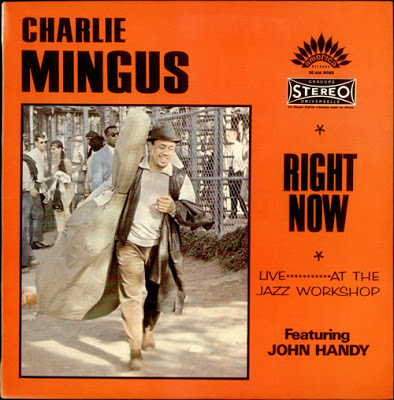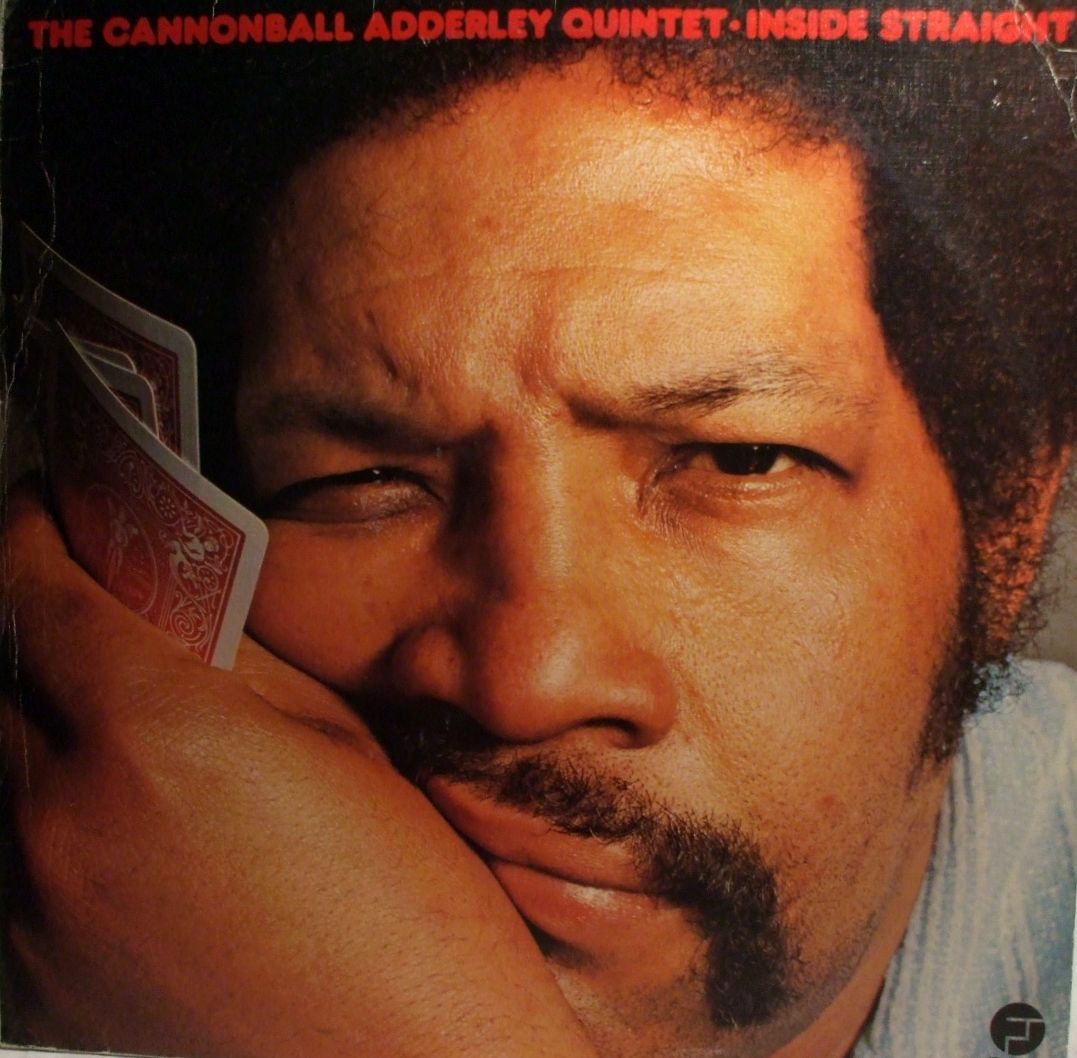As the reflection of a typically volatile live performance of Charles Mingus, Right Now: Live At The Jazz Work Shop is indispensable.
Personnel
Charles Mingus (bass), Clifford Jordan (tenor saxophone), John Handy (alto saxophone A1), Jane Getz (piano), Danny Richmond (drums)
Recorded
on June 2 & 3, 1964 at The Jazz Workshop, San Francisco
Released
as Fantasy LP 6017
Track listing
Side A:
New Fables
Side B:
Meditation (For A Pair Of Wire Cutters)
By 1964, bassist and composer Charles Mingus had been in the business for two decades, contributing to the bebop revolution and recording landmark albums that stretched the boundaries of mainstream jazz, such as Pithecanthropus Erectus, Mingus Ah Um and Black Saint And The Sinner Lady. In the summer of that year, the beguiling line-up of Mingus’ latest group including reed wizard Eric Dolphy had partly disbanded. Pianist Jaki Byard’s last appearance with Mingus had been in April. Trumpeter Johnny Coles fell ill and Dolphy stayed behind in Berlin after their European tour. (where Dolphy died from a diabetes attack on June 28, three weeks after Mingus recorded Right Now) Of that group, tenorist Clifford Jordan remained alongside the longtime Mingus sidekick on the drums, Danny Richmond. Right Now doesn’t give the impression that Mingus temporarily lacked inspiration because of Dolphy’s and Byard’s absence. On the contrary.
New Fables is a reworking of Fables Of Faubles, Mingus’ famous biting protest tune directed against the segregationist governer of Arkansas, Orval E. Faubus. Mingus continued playing the other composition of the album, Meditation On Integration, from the ‘Dolphy’-era, giddily retitled as Meditation (For A Pair Of Wire Cutters). Both tunes cross the 23 minutes line, but keep interesting to the last note. It’s a revealing experience to hear Mingus direct the flow of the music in New Fables through his driving, immaculate bass playing, shifting tempo’s like a madman and pushing the group to segue into and out of themes, wild shuffles, a cappella horn parts and slow blues parts. Tenorist Clifford Jordan is inspired to go well beyond his game and John Handy, who had a history in Mingus groups, puts in a hard-driving mix of bop and blues. Mingus also stokes up the fire with his archetypical, hoarse exhortations that sound like crosses between the fire and brimstone of the altar and the hog call.
An equally rousing personality as Mingus, drummer Danny Richmond is integral to the group’s spontaneous combustion. He blends proficiency with intuition and has the guts to veer off track, the road always lead home. Take into account that home, in this case, isn’t your everyday, suburban household. Mingus and Richmond have always been on the same page and their shared energy level on Right Now is absolutely crazy! The way they steer their way through Meditation’s first five minutes from the percussive opening driven by Mingus bowed bass, via a barnstorming swing section to a lovely, warm ballad bit, is breathtaking.
And then there’s Jane Getz. No relation to Stan. Not a household name, but a female jazz personality with a peculiar and outstanding career. A child prodigy on piano who’d spent her childhood in Los Angeles, Getz moved to New York when she was 15 and quickly acquainted herself with contemporary leading figures, playing with Pony Pointdexter, Pharoah Sanders, Charles Lloyd, Roland Kirk, Elvin Jones, Stan, yes, Getz, and, eventually, performing with Mingus. Dropping out of the jazz scene when she secured a RCA deal as a session musician and producer in L.A., the seventies and eighties found her working on albums by the likes of John Lennon, Harry Nilsson and The Bee Gees, as well as recording country music as Mother Hen. It was only in the early nineties that she returned to jazz. Getz struck up a fruitful association with saxophonist Dale Fielder (who chronicles the life and career of Getz on his blog here) in 1995, which remains to this day.
Thrown into the barnstorm of a Mingus session at the last minute, with a couple of complex charts in front of her ten fingers and eighty-eight keys, Getz fazes the controlled chaos of Mingus couragiously. Her accompaniment is robust and edgy, she puts in some interesting thematic variations behind the soloists. Her transparant, long lines in Meditation bring to mind the modal moods of mid-sixties McCoy Tyner and Herbie Hancock. I’m a sucker for the disturbing ‘banging’ sound of piano, bass and drums that signal new sections in New Fables around the third minute that alludes to modern classical composers such as Edgar Varese. Or maybe they were just trying to blow off the Jazz Workshop’s rooftop. At any rate, although I know I have it coming, it keeps shaking my nervous system time and again in a rather mysterious, euphoric manner. Being hurled into the shredder by The Baron. A recognizable feeling for many jazz fans, I’m sure.



